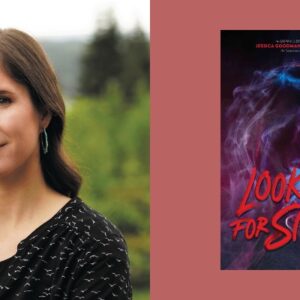There’s always a certain distance to eulogizing an artist you didn’t know personally. Without the firsthand connection, what you’re really mourning is the loss of future art, which can feel like a fairly callous reaction to a human being’s death. In some cases, though, with art that did something truly special, it’s something more complicated than that, a connection permanently severed at one end.
That’s how it felt May 23 when I saw, checking my phone on a road trip with my spouse, that Caleb Carr, author of “The Alienist” was dead at 68. I first read Carr’s book more than 15 years ago in 2007, my freshman year of college. My dad had been recommending it to me for years—when I was younger, we’d read and loved Sherlock Holmes stories together and he correctly figured Carr’s similarly immersive period mystery would be right up my alley. But at that time in my life, it was more than just an enjoyable way to pass the time, it was something of a lifeline.
I went to college in the city where I grew up, taking the bus to campus every morning from my parents’ house my first semester instead of living on campus. I was acutely aware this wasn’t the typical college experience, and I tried not to let it bother me. I was diagnosed on the autism spectrum a few years beforehand and I’d only had a handful of friends in high school and with all of them scattered for college, I wasn’t sure where to begin. People make friends in college, I figured, through their roommates or through extracurriculars that took place after I’d left campus. I’d grown very close to a younger friend of mine from high school whose advice I still sought, but I was otherwise largely on my own.
This was the context in which I dove into “The Alienist” on my morning bus rides (Carr’s sequel “The Angel of Darkness,” is also great but I wouldn’t read it until about a year later). There were other finds for my commute, most of which also remain favorites to this day, like Walter Mosley’s Easy Rawlins series or Dennis Lehane’s Patrick Kenzie series. But it was Carr’s books that really turned out to be just what I needed. On paper, the book seems like the opposite of heartwarming: the central mystery involves an investigation by Laszlo Kreizler, the eponymous psychiatrist, into the gruesome murders and mutilations of child sex workers. Carr makes no effort to sugarcoat the racism, misogyny and police corruption that ran Gilded Age New York. But that’s not what sets Carr’s book apart. What really sucked me in was the de facto family of outcasts that forms the story’s emotional center.
Much of the action revolves around the partnership of Kreizler and his Watson figure, the brash crime reporter John Moore. But as a psychiatrist at a time when the field was considered disreputable and pseudoscientific, Kreizler is assisted by an entire retinue of trusted associates no one else bothers with. There’s Sara Howard, the brilliant woman detective stymied by the sexism of the police; Marcus and Lucius Isaacson, cerebral Jewish cops who are similarly held back by antisemitism but are on the cutting edge of forensic techniques; and Cyrus Montrose, Kreizler’s bodyguard, a Black man the doctor helped acquit of murder.
In a lesser book, each of these characters would have some skill that came in handy at precisely the right time, but while they’re all valuable to the case, they’re not written as a specialized team, but as a family unit. The members’ status as castoffs in their society makes them far-better suited than the NYPD to find justice for victims who are themselves considered degenerates and undesirables, but perhaps more importantly, it binds them in a way that makes them emotionally up to the task at hand.
Perhaps this is best demonstrated in a climactic scene in the book in which the police kill Mary, Kreizler’s mute servant and the secret object of his affection. The entire group functions as a unit in mourning, with the investigation briefly coming to a screeching halt at the loss of one of their own.
Plenty of stories, across plenty of genres, feature these sort of families of choice, bound by circumstance and commonalities, but what really highlights their value in “The Alienist” is their contrast to their surroundings, from the rank cronyism of the NYPD to the chilly dynasties of old-money New York. The killer himself was an abused child, preying on others cast out by their families and shunned by society—in a sense, Kreizler and his companions are solving crimes committed by and against people who could have been them in another lifetime.
I never met Carr, but I met his characters at a time when, like a lot of 18-year-olds, I was desperately unsure of my place in the world and sure I was running out of time to figure it out. The book alone didn’t resolve those feelings—only experience can do that—but it did one of the most valuable things a book can do and made me feel a little less alone. There is no way Carr could have known what his writing did for me, but I hope he understood what it was capable of. Seventeen years later, married and with a career, I still find myself appreciating it.

















